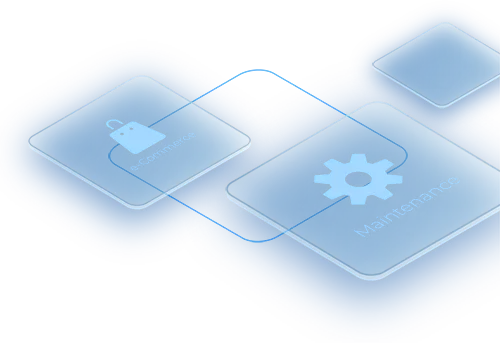
Why You Need ERP In Manufacturing?

Why You Need ERP In Manufacturing?
Manufacturing industries have become increasingly complex and competitive over the years.
Businesses in this sector constantly face challenges in managing resources, production, and meeting customer expectations.
To tackle these demands effectively, companies have turned to advanced technological solutions.
One such innovation that has proven invaluable is the implementation of an ERP System.
The growing reliance on ERP software highlights its transformative potential for modern manufacturing.
The use of ERP systems has made the complicated process much more simple and efficient.
As industries continue to grow, the need for ERP in manufacturing becomes even more critical, facilitating smoother processes and better decision-making.
Content Index
- What is ERP and How Does it Work in Manufacturing?
- Key Benefits of Implementing ERP in Manufacturing
- How ERP Enhances Manufacturing Efficiency
- Overcoming Challenges in Manufacturing with ERP
- Selecting the Right ERP System for Your Manufacturing Business
- Conclusion
What is ERP and How Does it Work in Manufacturing?
ERP, or Enterprise Resource Planning, is a software system designed to help businesses manage their core processes.
In the manufacturing sector, ERP integrates functions such as production, inventory, procurement, and sales into one cohesive or unified platform.
By using this system, manufacturers gain real-time visibility across operations, which enhances decision-making capabilities.
An ERP system enables businesses to allocate resources efficiently, track orders, and maintain consistent communication between departments.
The service provided by ERP software addresses various pain points within the manufacturing industry.
Key Benefits of Implementing ERP in Manufacturing
The need for ERP in manufacturing has grown significantly as companies face increasing pressure to enhance productivity, reduce costs, and remain competitive.
Implementing an ERP system brings several crucial advantages that can transform how manufacturing businesses operate.
Below are some key benefits of adopting ERP software for manufacturing operations:
Improved Resource Management
With the help of ERP software, manufacturers can track and manage resources like raw materials, labor, and equipment in a centralized manner.
This better management leads to fewer resource shortages, more efficient use of assets, and the ability to meet production schedules consistently.
Enhanced Decision-Making
ERP systems provide manufacturers with access to real-time data that allows them to make more informed decisions.
ERP software provides accurate, real-time data, allowing leaders to quickly adapt to changes in production, market trends, or supply chain disruptions.
Cost Reduction
One of the primary benefits of ERP in manufacturing is its ability to minimize operational costs.
By automating manual processes, reducing errors, and improving inventory management, ERP systems help businesses avoid wasteful spending and boost overall efficiency.
Increased Collaboration Across Teams
With an ERP system, departments within a manufacturing company can access shared information on a single platform.
This promotes better collaboration between teams, such as production, sales, and customer service, helping to achieve common business goals.
Better Compliance and Reporting
An ERP system simplifies compliance with industry regulations by providing tools to track, document, and generate reports effortlessly.
By maintaining accurate records, manufacturers can reduce the risk of non-compliance and avoid costly penalties.
Scalability and Flexibility
ERP software is designed to grow with your business.
As manufacturing operations expand, the need for ERP in manufacturing becomes more apparent and necessary.
These systems can scale to accommodate new processes, products, and locations without disrupting day-to-day operations.
How ERP Enhances Manufacturing Efficiency
Today businesses need to accommodate systems and approaches that can help them stay ahead of the competition.
As manufacturing becomes more complex, the need for reliable tools like ERP to manage operations increases.
Centralized Data Access
ERP systems collect and store information from all departments into one centralized platform.
This centralized data access improves communication across all teams, providing real-time insights into production, inventory, sales, and financial performance.
By eliminating the issues that traditionally existed between departments these systems help make better-informed decisions that positively impact efficiency.
Automation of Repetitive Tasks
The automation capabilities of ERP systems free up valuable time for manufacturing staff.
ERP software automates tasks like inventory tracking, production scheduling, and order processing, freeing employees for more strategic work.
By reducing the time spent on manual data entry, manufacturers can reduce errors and improve accuracy.
All these can contribute to higher efficiency in the manufacturing process.
Improved Production Planning
ERP systems help manufacturers plan production schedules more effectively by providing real-time insights into inventory levels, raw material availability, and production capacity.
These features ensure that production schedules are realistic and achievable, minimizing downtime and ensuring that manufacturing activities run smoothly.
The need for ERP in manufacturing is evident in the way these systems improve production planning and maximize the use of available resources.
Real-Time Performance Monitoring
ERP systems provide manufacturers with the ability to continuously track and monitor key performance indicators (KPIs) like production output.
This real-time monitoring enables manufacturers to quickly identify bottlenecks or inefficiencies in their operations.
With this data, manufacturers can respond accurately to any issues, optimizing their production processes and avoiding unnecessary delays.
Cost Control
Managing costs is a critical aspect of manufacturing efficiency.
ERP software provides visibility into various cost factors, including materials, labor, and overheads.
This visibility allows manufacturers to track expenses in real time, detect cost overruns early, and make adjustments as necessary.
By maintaining control over production and operational costs, ERP systems contribute to better resource management and profitability.
Overcoming Challenges in Manufacturing with ERP
Manufacturing businesses face numerous challenges that can destroy productivity and growth.
Data Inconsistency
Traditional manufacturing systems often rely on separate tools for different departments, leading to discrepancies in data.
ERP systems centralize data in one platform, ensuring that all departments have access to accurate, real-time information.
This eliminates errors caused by inconsistent data and improves decision-making across the organization.
Supply Chain Disruptions
Delays in the supply chain have the potential to cause stock shortages, disrupt production processes, and result in higher expenses.
The feature of real-time visibility into inventory, orders, and supply chain processes highlights the actual need for ERP Systems in the manufacturing field.
With this information, manufacturers can quickly identify potential disruptions and take preventive measures to minimize their impact and improve operational efficiency.
The benefits of ERP in supply chain management help businesses maintain smooth operations even during unexpected disruptions.
Resource Shortages
Shortages of raw materials or labor can cause production delays, affecting product delivery and customer satisfaction.
ERP systems help businesses forecast demand more accurately, ensuring optimal inventory levels and reducing the risk of stockouts.
By automating inventory management and production scheduling, ERP software optimizes resource allocation, preventing shortages from affecting the production process.
These systems improve resource planning and ensure the timely availability of materials.
Regulatory Compliance
Manufacturers must comply with evolving industry regulations, and failure to do so can result in costly penalties.
ERP software helps businesses stay compliant by automatically tracking regulatory changes and generating the necessary reports.
This reduces the manual effort required for compliance management and minimizes the risk of errors.
With an ERP system, manufacturers can manage their operations with respect to the latest industry standards, reducing the likelihood of non-compliance.
Lack of Integration
Using multiple disconnected software solutions can create operational silos, making it difficult to manage processes efficiently.
An ERP system integrates various functions—finance, production, inventory, customer service—into a single platform.
This eliminates the need for separate systems, simplifying processes, and developing better communication across departments.
The integration offered by ERP systems helps to improve business coherence, making operations more efficient and reducing the chance of miscommunication.
Selecting the Right ERP System for Your Manufacturing Business
Choosing the most suitable ERP system is a crucial decision for manufacturing businesses aiming to improve their overall efficiency and operations.
The need for ERP in manufacturing has never been more significant, as industries are increasingly adopting integrated systems to handle complex workflows.
Here are some key considerations to help you in making an informed choice:
Analyze Business-Specific Requirements
Begin by identifying the specific needs of your manufacturing operations, such as managing inventory, tracking production, and maintaining financial records.
Understanding these requirements helps narrow down ERP systems that cater to your operational goals and unique challenges.
Evaluate the Scalability of the ERP Software
Select a system capable of supporting your business growth over time.
Scalable ERP software, such as EBR’s ERP Software for Manufacturing, adapts to increased production demands and more complex processes.
Prioritize Integration Capabilities
An effective ERP system seamlessly connects with your existing tools and third-party applications.
Integration allows all systems to function jointly, reducing repetitive work and improving productivity.
Look for Customization Options
Businesses often have unique workflows, making customization a critical factor when choosing an ERP system.
A customizable solution allows tailoring the software to meet specific operational needs.
Assess Vendor Support and Training
Opt for a vendor that provides robust training programs and reliable technical support.
Effective support can help your team efficiently adopt and utilize the ERP software, minimizing disruptions during the transition.
Understand the Benefits of Various ERP Systems
Consider systems offering comprehensive features, such as real-time monitoring, predictive analytics, and enhanced collaboration.
These features underline the benefits of ERP for streamlining manufacturing tasks and improving decision-making processes.
Conclusion
The need for ERP in manufacturing cannot be ignored, given its ability to address industry-specific challenges and operational efficiency.
By using ERP systems, businesses gain better control over their resources, production processes, and compliance obligations.
Implementing the right ERP software ensures manufacturers remain competitive in an ever-evolving market.
As manufacturing continues to advance, ERP systems will play a critical role in shaping the industry’s future.
Remember to choose the best ERP solution that aligns with your manufacturing goals and supports your growth aspirations.
A well-chosen ERP system improves efficiency while offering long-term value by encouraging innovation and flexibility in your operations.
If you wish to read more about ERP System in detail feel free to go through our following blogs where we have covered all aspects you need to know!
Let's Connect!
Are you currently exploring software solutions for your business? 🤔
Great! What’s the single biggest challenge you’d like a software solution to solve for your business? 🎯
💡 Suggested Solution Ideas:
Just one more step! Share your details so our experts can connect with you personally and discuss tailored solutions. 🤝
Thank You for Connecting! 🎉
We've received your information and a specialist will be in touch with you very shortly to discuss how we can help your business thrive.
In the meantime, feel free to browse our resources or reach out if you have immediate questions.
Understood! 🙏
No worries if you're not exploring software solutions right now. Our door is always open if your needs change!
Feel free to explore our other offerings or connect with us anytime.





